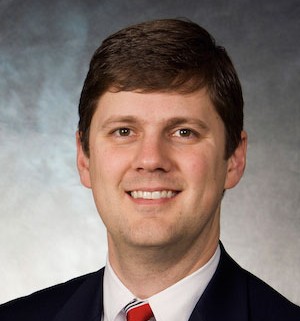Federal Policy Updates
Mike Knotts, director of government affairs
While the Tennessee Legislature is in session, I focus much of my time on the goings-on at the Capitol in Nashville. While it’s nice to spend more time at home this time of year, there are some important developments in Washington, D.C., that impact your cooperative.
Power Marketing Administrations
In the August 2012 edition of this magazine, I discussed the threat to the future of the Power Marketing Administrations (PMAs). The PMAs, owned by the federal government, are a byproduct of the public service that a dam built to control flooding provides to all citizens. The water that flows through the dam can be used to turn a turbine and generate electricity. That electricity is then sold to utilities at a price that is only high enough to cover the extra costs of producing it. That cheap power helps keep overall electric bills low and is a real success story in developing multipurpose infrastructure that benefits all our citizens.
Last year then-Secretary of Energy Stephen Chu proposed a program that would radically change the focus of the PMAs from producing low-cost, reliable and renewable electricity. His proposal added a smorgasbord of requirements unrelated to the sale of that power — things that were only vaguely connected to water spilling through a dam. It was a bad idea, and most of Tennessee’s members of Congress voiced their concerns.
Today, Secretary Chu has resigned, and President Barack Obama has nominated Dr. Ernest Moniz to replace him. During his confirmation hearing before the Senate Energy Committee, Dr. Moniz stated that the “first priority” of the PMAs is providing lowest-cost power. When Sen. Mike Lee of Utah pressed further and asked whether Dr. Moniz would advocate policies that could significantly raise PMA rates, Dr. Moniz said, “No … I don’t believe we would if it’s something that the PMAs and their customers don’t agree with.”
This is good news for us, and you can be sure we will make sure Dr. Moniz remembers his words.
Rural Utility Service
Another program that has been a true success story over the years is the Rural Utilities Service (RUS). In the 1930s, electric cooperatives were born as a part of the first true “public-private partnership” devised by the government. Recognizing that rural electrification was essential to the future of the country and that existing power companies were refusing to extend electric service to the vast majority of rural America, the federal government decided to encourage the development of locally controlled, member-owned electric cooperatives as a solution to the problem. This encouragement came in the way of low-interest loans that helped these new co-ops install the poles and wires that literally lit up the countryside. The cooperatives paid back the funds — with interest — which made additional money available to fund loans to other cooperatives.
Part of the Department of Agriculture, RUS continues this program today. Because this model has been so successful, the RUS loan program now generates excess money for the Treasury and is helpful in reducing our national budget deficit.
Unfortunately, President Obama does not want to leave well enough alone. In his recently released budget, the president proposes to limit the uses of this loan fund in such a way that would render it almost useless. His budget in 2012 proposed nearly the same language, but Congress had sense enough to ignore it.
With the rest of the federal government hemorrhaging cash, this is not the time to tinker with a program that has been overwhelmingly successful. Lowering the deficit and keeping electric bills low are mutually beneficial goals that we all can support. I’m optimistic that Congress will again ignore this bad idea.
Tennessee Valley Authority
As you may have read on page 4 of The Tennessee Magazine, the president also made a surprise suggestion in his budget document. He suggests a possible sale of the Tennessee Valley Authority. While David Callis sums up the issue nicely in his column, I would also add a slightly more technical point:
The budget proposed to launch a study of the possible divestiture of TVA “in part or as a whole.” The problem for the president? What he proposed is against the law. The Urgent Appropriations Act of 1986 included language that requires the express consent of Congress to undertake such an action.
Hopefully, this proposal will end up like the other ill-conceived plans to privatize TVA — in a trash can at the White House.









Leave a Reply
Want to join the discussion?Feel free to contribute!